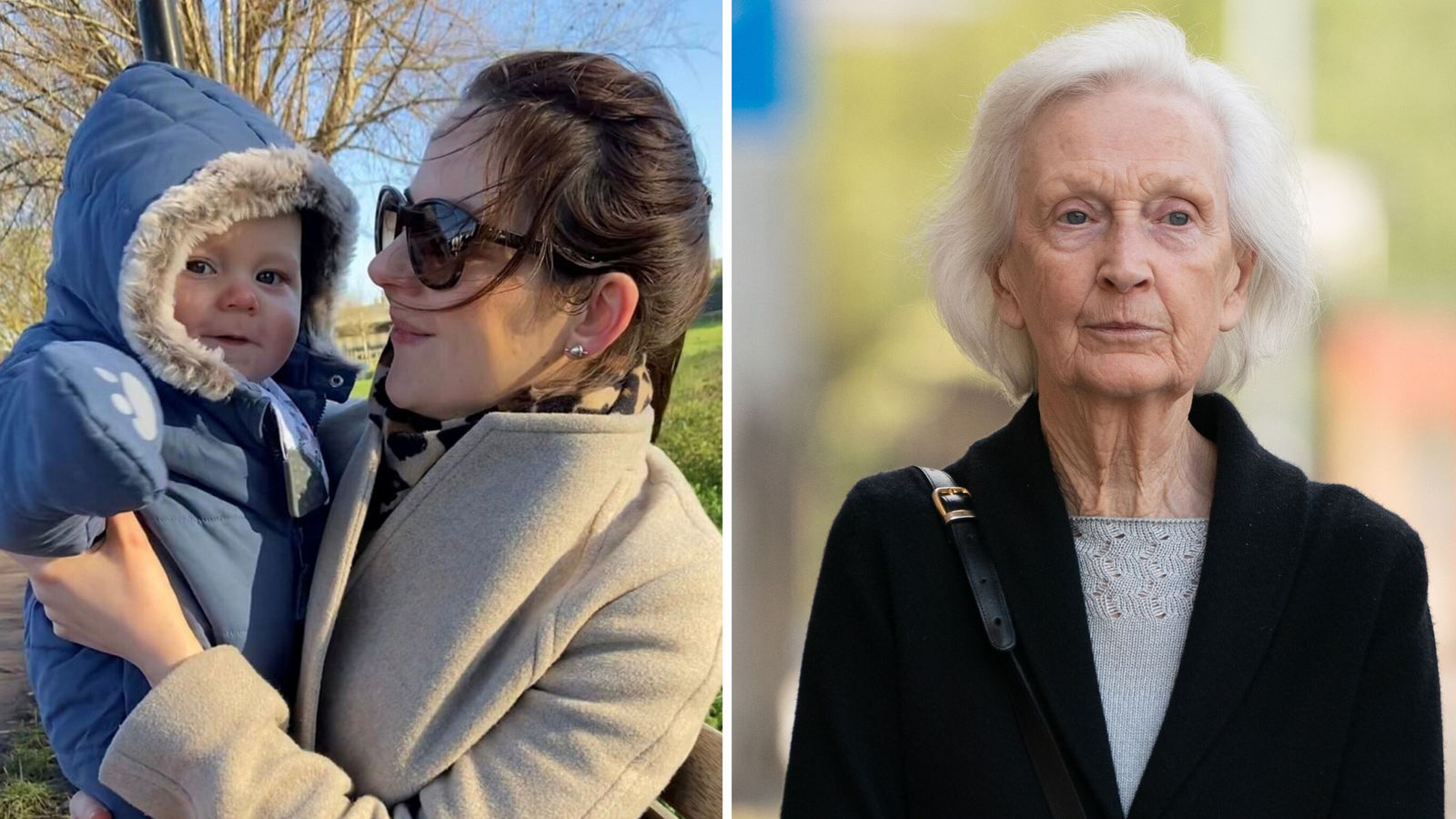A pensioner accused of causing the death of a baby boy by careless driving will say she had undiagnosed Alzheimer’s disease at the time and will mount a defence of insanity, a court has heard.
Shelagh Robertson, 75, was driving home from shopping at Tesco when she turned into the path of an oncoming van on the A10 at Waterbeach in Cambridgeshire on 22 January last year, forcing the van on to the pavement, Cambridge Crown Court heard.
The van hit five-month-old Louis Thorold and his mother Rachael Thorold, killing him and throwing Mrs Thorold into the air and causing her serious injuries.
Another driver who witnessed the crash, Kaye Lewis, said in a statement read in court that the van driver was “fighting the steering wheel but the van just kept going towards the pavement”.
She said she remembered seeing the “absolute terror” on Mrs Thorold’s face when she saw the van before she was “thrown 15ft in the air then landed”.
“I saw the pram just disintegrate into pieces and go under the van,” she added.
Robertson, of Stables Yard, Waterbeach, denies causing the baby boy’s death by careless driving.
Four-year-old girl dies in house explosion in south London
Boris Johnson will not intervene in cost of living crisis as that is ‘for future prime minister’
Ryan Giggs: ‘Sinister’ ex-Manchester United star headbutted ex-girlfriend during ‘litany of abuse’, court hears
James Leonard, defending, told the court it was “agreed by any reasonable objective test the way Mrs Robertson drove on the day of the accident fell below the standard to be expected from a reasonable, competent driver”.
“The issue in this case is whether or not Mrs Robertson was suffering from insanity as it’s recognised by law,” he said.
“The defence case is that Mrs Robertson had undiagnosed atypical Alzheimer’s disease both before the accident and on the day, and that’s what will lead to the conclusion that the defence of insanity is made out.”
Mark Bishop, the judge, told the jury of nine women and three men that for a defence of insanity to succeed they must be persuaded Robertson was suffering from atypical Alzheimer’s disease at the time of the crash and that “as a result of that disease she experienced disrupted thinking”.
He said the disrupted thinking could either be that as she drove the car she “didn’t know what she was doing” or that she “didn’t know that what she was doing was wrong by the standards of reasonable people”.
David Matthew, for the prosecution, said Robertson had turned right and driven her Mazda 2 car into the path of an oncoming Renault van that was travelling south along the A10 at the junction with Car Dyke Road.
“The impact forced the van on to the pavement,” he said.
“Walking along the pavement towards the van were Rachael Thorold and pushing in front of her five-month-old son Louis in a pushchair.
“The van went over them.”
Mr Matthew said the van was driven by delivery driver Andrew Freestone, whom he described as a “careful and professional driver”.
He said the incident was captured by dashcam footage and Mr Freestone was driving “properly, sensibly and within the speed limit”, which at the time was 50mph.
Mr Matthew said Mr Freestone “tried to steer to his right” to avoid a collision.
“He saw the pushchair, heard thumps, saw the woman with the pushchair go up in the air,” he said.
He said of Robertson: “Obviously a competent and careful driver doesn’t drive into the path of oncoming traffic which has the right of way without looking.”
Mr Matthew said a witness had spoken to Robertson after the crash as she sat in the back of another car and that she told them: “I just didn’t see him coming.”
Another witness described Robertson as “alert, agile” and “able to scoot across the Mazda and leave by the passenger door” after the crash.
Louis was pronounced dead on arrival at hospital, Mr Matthew said.
PC Matthew Bill, of Cambridgeshire Police, said Mr Freestone had “less than half a second” to react to the car pulling out of a filter lane and across his path.
The trial, which is due to last less than a week, continues.






















